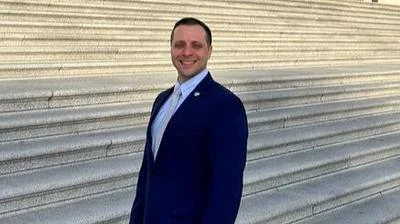Today, Representative Marcy Kaptur (OH-09) released the following statement on President Biden’s fiscal year 2023 federal budget request.
“President Biden’s budget proposal is an investment in the Middle Class workers and communities that make, build, and grow America,” said Rep. Kaptur. “By requiring the wealthiest and biggest corporations to pay their fair share, we will cut the deficit, lower costs, and advance American innovation and competitiveness. I look forward to working with Democrats and Republicans to pass a budget that uplifts students, workers, and seniors, provides for our servicemembers, veterans, and first responders, and drives American progress forward in this 21st century.”
Highlights of President Biden’s budget request
- Ensures corporations pay their fair share by increasing the rate that corporations pay in taxes on their profits, and makes changes to the corporate tax code that incentivize job creation and investment in the United States
- Strengthens supply chains, ports, and domestic manufacturing by including $230 million for the Port Infrastructure Development Program to strengthen maritime freight capacity, $372 million for the National Institutes of Standards and Technology’s manufacturing programs to launch two additional Manufacturing Innovation Institutes, and a $125 million increase for the Manufacturing Extension Partnership to make America’s small and medium manufacturers more competitive
- Combats crime to keep communities safe by including $32.2 billion in mandatory and discretionary spending for law enforcement agencies across the nation for crime prevention, community violence intervention, and the hiring of additional officers
- Equips workers with skills for high-quality jobs by including $303 million to expand registered apprenticeship opportunities in high-growth fields such as information technology, advanced manufacturing, health care, and transportation, $100 million to help community colleges work with the public workforce development system and employers to design and deliver high-quality workforce training programs; and $100 million for a new Sectoral Employment through Career Training for Occupational Readiness program which will support training programs focused on growing industries, enabling disadvantaged workers to enter in-demand jobs
- Supports servicemembers and veterans by including $119 billion for the Department of Veterans Affairs – a 32-percent increase – to fully fund inpatient, outpatient, mental health, and long-term care services, as well as training programs for clinicians, health professionals, and medical students
- Transforms mental health care by increasing funding for community-based centers and clinics, mental health staff in schools, youth mental health and suicide prevention programs, and improved access to crisis services by building out the National Suicide Prevention Lifeline and crisis services infrastructure
- Increases access to housing by including $50 billion for housing construction and supply to address existing market gaps and stabilize housing prices over the long-term
- Invests in clean energy infrastructure and climate resilience by including billions for climate programs across the federal government, including efforts to reduce the risk of damages from floods and storms and restore aquatic ecosystems, $502 million to weatherize and retrofit low-income homes, and $100 million for a new LIHEAP Advantage pilot to electrify and decarbonize low-income homes






 Alerts Sign-up
Alerts Sign-up